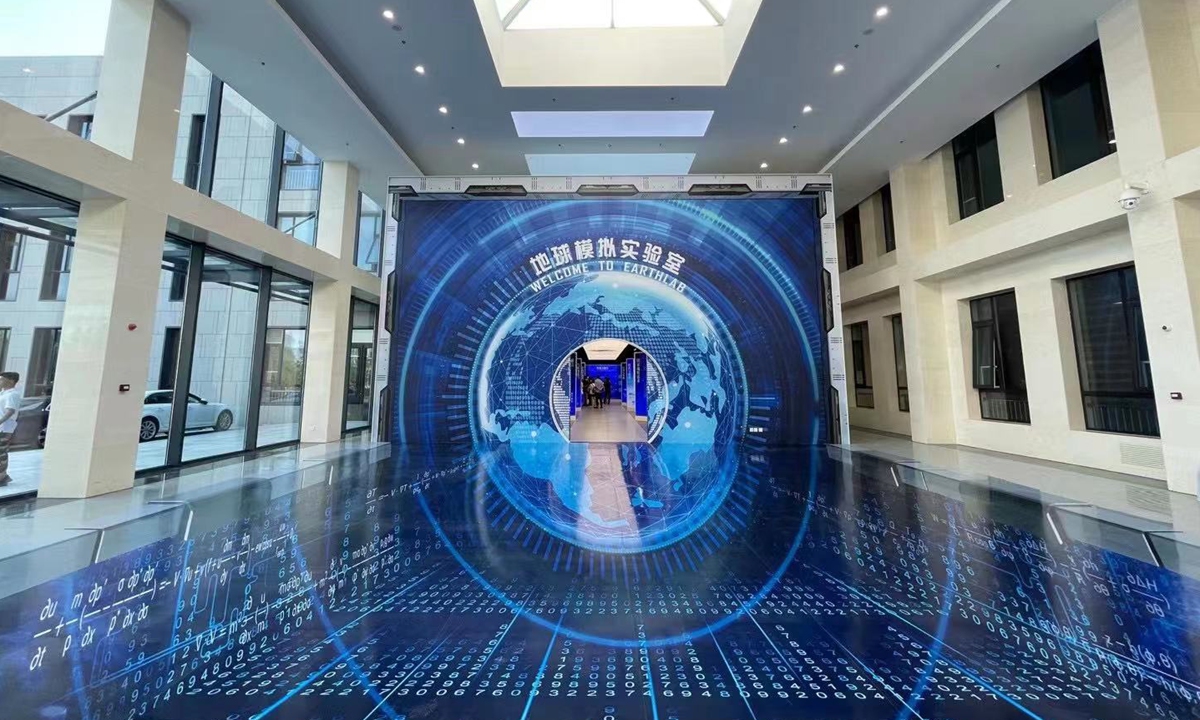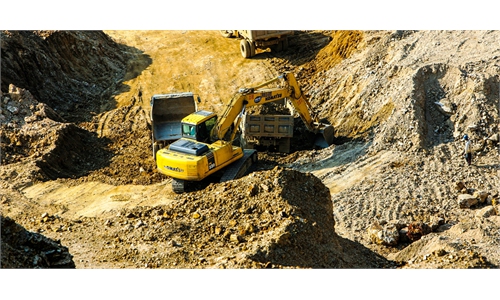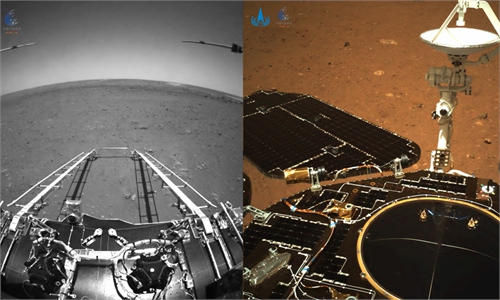
Caption: The EarthLab is launched in Beijing's Huairou Science City on Wednesday. Photo: Zhu Jiang
China on Wednesday launched its first virtual Earth laboratory for the simulation of climate, environmental, ecological, Earth and space weather systems, which can predict climate and environment variability, prevent and mitigate natural disasters more effectively and improve China's right to speak in international climate negotiations.
The virtual Earth lab, EarthLab, was officially launched in Beijing's Huairou Science City on Wednesday. In partnership with Tsinghua University, the Institute of Atmospheric Physics at the Chinese Academy of Sciences (CAS) began developing EarthLab in 2018. After trial operations, inspections and approvals, EarthLab is expected to become fully operational — and open to universities and research institutes across the world — in 2022, according to the CAS.
EarthLab's research team published an introduction to the facility in the journal Advances in Atmospheric Sciences on Wednesday.
"EarthLab is the first comprehensive virtual Earth laboratory in China for the simulation of the physical climate system, environmental system, ecological system, solid earth system, and space weather system as a whole with a high-performance scientific computing platform," the paper corresponding author Zhang He, an EarthLab research fellow from the Institute of Atmospheric Physics at the CAS, told the Global Times.
Since the Earth's systems are extremely large and complex, traditional observations are too limited to meet the overall requirements of the scientific research community, Zhang said.
Countries such as the US and Japan and those in Europe have built specialized numerical simulation facilities, Zhang said.
The establishment of China's numerical simulation device for the Earth system will help to address the problem of overdominance by developed countries in the diplomatic negotiations on global climate, said Zeng Qingcun, an academician of the CAS.
We need to use our own computing data as the basis for climate and environmental negotiations to enhance China's voice in the international arena, Zeng said.
Zhang said that the ultimate goal of the lab is to predict Earth systems on a vast range of time scale, from seconds to hundreds of years, and of spatial scale, from 10 meters to millions of meters.
"Along with other Earth simulators around the world, the development and construction of EarthLab will advance not only the understanding of the Earth's spheres and their interactions, and Earth's past, present and future, but also the progress of computational mathematics, high-performance computing and technology, and other broader fields," Zhang said.




